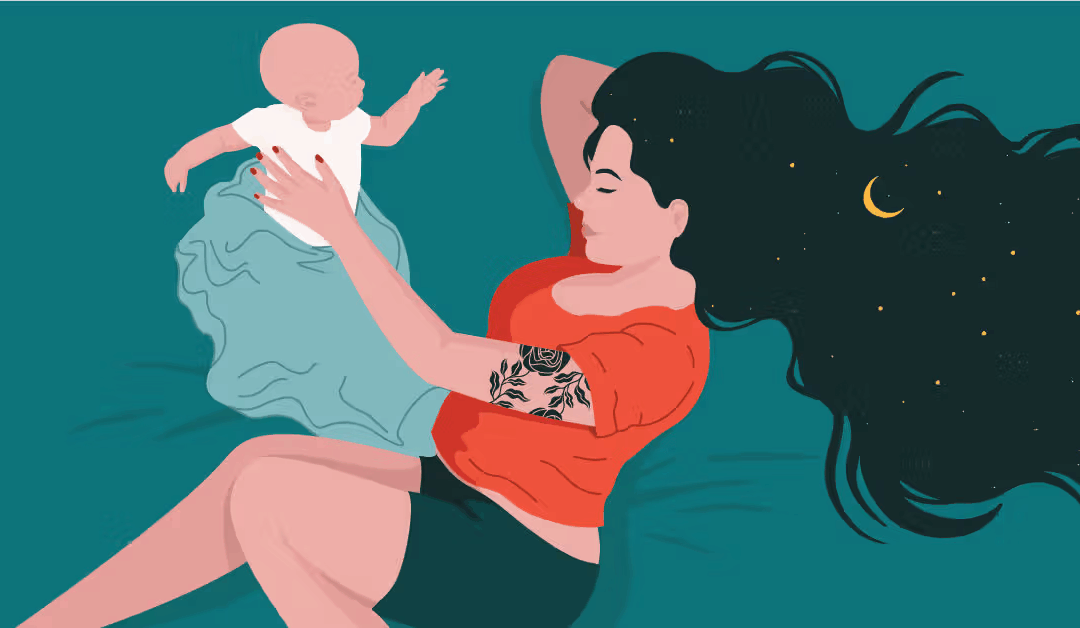
written by: Alexis Schoonmaker
As I sit here writing this blog, my daughter is 5 months old, and my son is 2 years old. My son has never been the best sleeper, and my daughter is still waking for night feedings. I’ve read countless articles, watched YouTube videos, and even hired a sleep coach to help guide me on how to get my kids to sleep better. Being a mom is the biggest blessing, yet we all feel the pain of sleep deprivation through the years.
This may make you wonder, why do newborns have frequent wakings? First let’s start with the term “fourth trimester” that was coined in 2002 by pediatrician Harvey Karp, MD. This term refers to the first 12 weeks following the birth of a newborn. Human babies are born relatively premature compared to other animals. Due to this, they need more time to develop outside the womb, requiring more support from parents during this period.
Babies are not born with a fully developed circadian rhythm, which helps us separate our sleep cycles between day and night. This impacts their ability to sleep throughout the night, leading to a pattern of sleeping and waking around the clock. The fourth trimester is a time of rapid growth, continuing into later years. This growth is sustained by their sleep and feeding patterns. That’s why parents are advised to feed their newborns every 2-3 hours, even at night, and follow their babies’ sleep cues.
In addition, babies are born with underdeveloped nervous systems, and their frequent waking plays a key role in regulating their breathing and heart rate. This is especially important in reducing the risk of Sudden Infant Death Syndrome (SIDS), as waking periods can help avoid long stretches of deep sleep where breathing irregularities could potentially occur.
While this time is incredibly challenging, understanding that your baby’s wakings are crucial for their growth and safety can be reassuring. Your baby’s need for frequent wakings isn’t just a hurdle—it’s an essential part of their development and protection.

